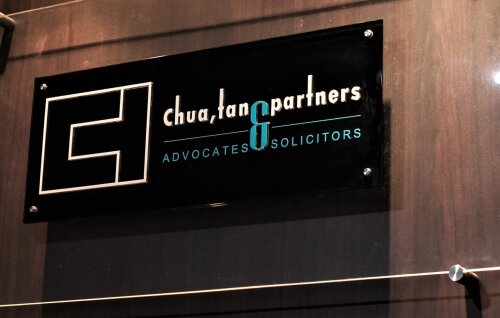Best Public-Private Partnerships (PPP) Lawyers in Kuala Lumpur
Share your needs with us, get contacted by law firms.
Free. Takes 2 min.
List of the best lawyers in Kuala Lumpur, Malaysia
About Public-Private Partnerships (PPP) Law in Kuala Lumpur, Malaysia
Public-Private Partnerships (PPP) play a vital role in the development of infrastructure and public services in Kuala Lumpur, Malaysia. A PPP is a collaborative arrangement between a government entity and a private sector company to finance, design, implement, and operate projects that benefit the public, such as roads, hospitals, utilities, and schools. In Kuala Lumpur, PPP projects are governed by specific national legislation and policy frameworks aiming to balance risk, promote transparency, and ensure value for money. The Malaysian government actively encourages PPP projects to enhance development, increase investment, and provide efficient public services.
Why You May Need a Lawyer
Engaging in a PPP project can involve complex legal considerations. You may require a lawyer in scenarios such as:
- Negotiating and drafting contracts or concession agreements with government agencies
- Advising on compliance with relevant laws, regulations, and policies
- Assisting with procurement and tender processes
- Managing risk allocation between public and private partners
- Resolving disputes arising from PPP arrangements
- Structuring financing arrangements and securing project funds
- Addressing land acquisition and environmental compliance issues
- Handling intellectual property, taxation, and labor matters within the PPP framework
Legal advice ensures your interests are protected throughout the project lifecycle and helps you navigate regulatory and commercial challenges.
Local Laws Overview
PPP activities in Kuala Lumpur are primarily governed by several national frameworks and policies, including the Public-Private Partnership Guideline introduced by the Economic Planning Unit (EPU) under the Prime Minister’s Department, and other sector-specific laws. The key aspects of local laws relevant to PPPs include:
- PPP Guidelines and Policies: Set standards for project selection, evaluation, and implementation of PPPs.
- Procurement Regulations: Govern the tendering and selection process to ensure transparency and competition.
- Project Financing: Regulate how public and private funds are sourced and managed for each project.
- Risk Allocation: Define how risks are shared between the government and private partners.
- Concession Agreements: Outline the rights, duties, and terms governing the operation and maintenance of PPP projects.
- Compliance: Ensure that projects align with environmental, land use, and construction regulations.
- Dispute Resolution Mechanisms: Provide procedures for addressing disagreements between stakeholders, often involving arbitration or litigation.
Frequently Asked Questions
What is a Public-Private Partnership (PPP)?
A PPP is a collaboration between a government and a private sector entity to finance, build, and operate projects that serve the public interest, sharing risks and rewards.
What kinds of projects are typically implemented through PPPs in Kuala Lumpur?
Common PPP projects include transport infrastructure (highways, rail), utilities (water, energy), healthcare facilities, schools, and public housing.
Who regulates PPPs in Malaysia?
The main regulatory body is the Economic Planning Unit (EPU) in the Prime Minister’s Department, along with related sectoral ministries and local authorities.
How does the PPP procurement process work?
The process usually involves a call for proposals or tenders, evaluation of bids, negotiation of terms, and formalization of a PPP contract or concession agreement.
What are the main risks involved in PPP projects?
Key risks include financial risks, construction delays, operational failures, regulatory changes, and market demand shortfalls. Risk allocation is a core part of the PPP contract.
Can foreign companies participate in PPP projects in Kuala Lumpur?
Yes, foreign companies can participate, often in partnership with local firms, but must comply with local investment, ownership, and licensing requirements.
How are disputes in PPPs resolved?
Most disputes are addressed through negotiation, mediation, or arbitration as specified in the contract. Malaysian courts may be involved if amicable resolution fails.
What is the duration of a typical PPP contract?
PPP contracts usually span 15 to 30 years, depending on the size and nature of the project.
What are the main legal documents involved in PPPs?
Essential documents include the concession agreement, financing contracts, subcontracts, land lease agreements, and government approvals.
Why is legal due diligence important in PPP projects?
Due diligence helps identify legal risks, ensures compliance, assesses the project's financial and operational viability, and protects all parties' interests.
Additional Resources
For more information or guidance on PPPs, you may refer to the following institutions and resources:
- Economic Planning Unit (EPU) - Prime Minister’s Department
- Public-Private Partnership Unit (UKAS)
- Malaysia Productivity Corporation (MPC)
- Malaysian Bar Council
- Malaysian Investment Development Authority (MIDA)
- Sector-specific ministries such as the Ministry of Works or Ministry of Transport
- Local legal and business advisory firms specializing in PPPs
Next Steps
If you need legal assistance with a PPP in Kuala Lumpur:
- Document your objectives and key concerns related to the PPP project
- Compile all relevant documents, including drafts, proposals, and correspondence
- Consult a lawyer or law firm with proven expertise in PPP and infrastructure matters
- Attend an initial consultation to discuss strategy, risk, and compliance requirements
- Follow your lawyer’s advice through the negotiation, documentation, and implementation phases to ensure your interests are well protected
Getting professional legal advice early can prevent costly mistakes and help your PPP project in Kuala Lumpur succeed.
Lawzana helps you find the best lawyers and law firms in Kuala Lumpur through a curated and pre-screened list of qualified legal professionals. Our platform offers rankings and detailed profiles of attorneys and law firms, allowing you to compare based on practice areas, including Public-Private Partnerships (PPP), experience, and client feedback.
Each profile includes a description of the firm's areas of practice, client reviews, team members and partners, year of establishment, spoken languages, office locations, contact information, social media presence, and any published articles or resources. Most firms on our platform speak English and are experienced in both local and international legal matters.
Get a quote from top-rated law firms in Kuala Lumpur, Malaysia — quickly, securely, and without unnecessary hassle.
Disclaimer:
The information provided on this page is for general informational purposes only and does not constitute legal advice. While we strive to ensure the accuracy and relevance of the content, legal information may change over time, and interpretations of the law can vary. You should always consult with a qualified legal professional for advice specific to your situation.
We disclaim all liability for actions taken or not taken based on the content of this page. If you believe any information is incorrect or outdated, please contact us, and we will review and update it where appropriate.

















